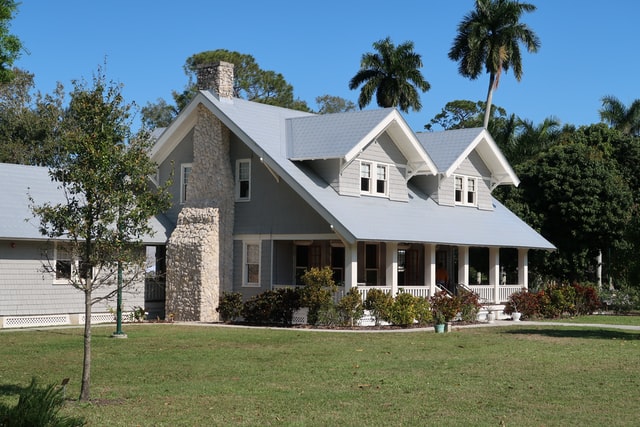To Airbnb or not to Airbnb: Is My Property Best for Short-Term or Long-Term Renting?

Whether you are new to rental investment or an experienced landlord, you have surely thought of renting long or short term. What is best to do, rent your property in the long or short term?
Before delving into the details, let us start with some reasons that make landlords question which of the two is better. One clear reason is the development of the long-term rental market itself. When the market slows down, you may not be able to obtain the rent increase you were hoping for. Or regular rent increase is crucial for many landlords as an important addition to their monthly income that often helps pay mortgages and other loans.
At the other end of the spectrum, thanks to online services such as Airbnb, the short-term rental market in many cities across the country is experiencing a massive boom. Renting your property short-term certainly brings in more money, but only for as long as it stays rented, but you lack control over how busy your property will be. On the other hand, a long-term rental means less money, but your property is virtually always rented out. Since revenue increase is what most landlords are up for, it is essential to make an educated decision about marketing your home as a long- or short-term rental.
Here are a few points that you should consider before you decide whether it is best to market your property as a short-term, as opposed to the more traditional long-term rental. Let us begin with the property:
Property location
Table of Contents
The most likely clients of short-term rentals are visitors, tourists, businessmen, and professionals. More often than not, these prefer to rent in the vicinity of the city center, attractions, or business and professional neighborhoods. If your property is conveniently located within walking distance of any of the above, it may be a good fit for a short-term rental such as Airbnb and you can consider becoming an Airbnb host. Do not despair if it is not. If the house is in a neighborhood that is well connected by public transport to the city center or attractions, many guests will still find it reasonable to commute, at least in certain conditions, which we will discuss below.
The general feel of the neighborhood is extremely important as well. If the area has a good range of restaurants and bars or is known for cultural activities or a rich nightlife, – in short, interesting activities that guests can do without venturing Uptown, or commuting outside of the neighborhood, – then your property is likely to attract them.
Facilities on your property
Once on your property, short-term guests will expect a similar comfort to what they have back home, so be mindful about your property’s facilities. More bedrooms, a large lounge, kitchen, and bathroom will surely be a perfect fit for a group of friends traveling together, or for a family. Other features that people usually find attractive are a pool, a barbecue area, and a large, open-air playground. On the other hand, a well-equipped desk and working space can be precious assets if professionals cross your doorstep. If your property ticks most of these points, it likely makes a great Airbnb rental, even if it is not situated in the poshest area of the city.

Furniture and appliances
Virtually all short-term rentals have to be furnished and equipped, so the question that you need to respond to is whether you want to invest thousands of dollars in furniture, appliances, and decorations. Good quality furnishing does not come cheap, and you may be looking at anywhere between a $7000 to $20,000 investment. Money is not all there is. You also need to allocate time, – typically about a month – to assemble the furniture and install all appliances. By the time you finish the renovation, your long-term rental would have already produced a month of rent.
There are other costs less obvious than furnishing the property: high traffic and intensive use will age your furniture and appliances much faster than those in your house, so be prepared to spend extra money regularly to repair and replace them.
Time and energy
Many landlords decide to go either long-term or short-term without taking into account one of the most important resources: their time and energy. Unless you contact a third party to administer your property, a short-term rental takes up much more of your time and energy than its long-term counterpart. You will be often on the phone with guests that have a request, need advice, have an emergency, arrive late, or leave early, and the like. Unless you hire someone, you will do the check-in and check-out, as well as the cleaning of the property.
The furniture and appliances of short-term rentals age much faster than in normal homes, as we said, and they will cost you a bit more than money. Be ready to jump in and repair them on a constant basis. Do not forget about the time and energy needed to market the property, adjust prices to the market offer, respond to inquiries, and read and leave online reviews. Short-term rental businesses can often turn into part-time or even full-time jobs!
Legal matters
Although it is not one of the first issues to come to mind when thinking about renting, the current legislation and rules that apply to your property can, in fact, hugely influence whether you can Airbnb or not. Is your property part of a Homeowners or Condo Association? Some of these associations have very strict renting rules and impose a minimum rental period of a couple of months at a time, which is a total no-go for Airbnb businesses. Some landlords decide to take on the risk and rent short-term even under these conditions. We strongly advise you not to: there are serious legal consequences and hefty fines to pay for illegal renting.
In addition to that, cities and communities across the country have different rules and regulations about short-term rentals, so stay up to date with the rules and regulations applicable to your property and check whether your particular community allows or encourages short-term renting.
Cash flow predictability
There is another important difference between short- and long-term rentals. On the long-term market, you can rely on a fixed and consistent rental income to supplement your income or pay your mortgage. With short-term rentals, you must be ready to have higher income ups and downs. Are you financially equipped to sustain such ups and downs? Do you want to rely on the rental income to pay your mortgage? Do you need constant income or you can do also with large imbalances in your cash flow? You must consider all of these questions before deciding on which path you continue.
If you’re a DIY landlord looking for a simple way to keep track of your income and expenses and plan your monthly or yearly budget accordingly, the HomeVault Rental Income Calculator is your go-to tool!
We hoped to have provided you with an overview of the complexity of factors that you should take into account before deciding to market your property as a long-term or short-term rental. Want to know more? We have interviewed a specialist in short-term rental management about Airbnb.
Credits: Photos by Sieuwert Otterloo on Unsplash.



Thanks for the info about long-term renting. I am interested in accommodation. I’ll consider this info as I do more research about long-term renting.